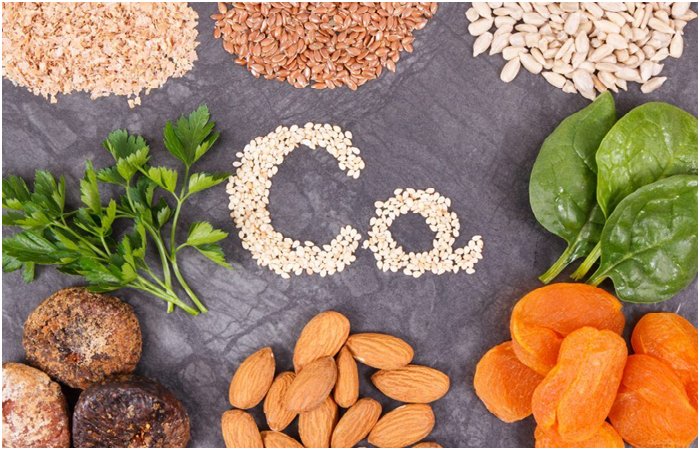Lactose intolerance can increase the risk of bone loss due to the possible chronic restriction of dairy products in the diet. It also happens with people who choose not to consume dairy products because they are vegan or simply because they don’t find it tasty. Milk and its derivative are an excellent source of calcium, but not the only ones.
Here we explain how to avoid calcium deficiency without consuming dairy products.
Also Read: Vegan and vegetarian diet – am I going to lack Iron?
Table of Contents
Calcium: It is a mineral necessary for good bone health
- Calcium is a fundamental mineral for bone health. It founds in the human body, mainly in teeth, bones, body tissues, neurons, blood, and other body fluids.
- Consumption must sustain according to recommendations based on gender and age.
- Daily intake should meet its contribution in the present and ensure that our bones become healthy and strong over the years.
- When the dietary calcium we ingest is too low, our body begins to use it from our bones.
- Calcium is lost and use from the bone for other integral functions of the body, leading to bone fragility or joint pain.
- In this way, the body tightly controls the calcium in the blood. Because of this, we measure the level of it in the blood cannot assess its status.
Functions of calcium in the body
The functions of calcium in our body are:
- Maintain parathyroid hormonal function, one of those in charge of regulating bone metabolism, guaranteeing correct mineralization.
- Participate in muscle contraction and relaxation.
- Participate in the functioning of the nervous system.
- Help in blood clotting and the activity of some enzymes.
- Maintain an average heart rate.
Vegetable alternatives to milk and its derivatives

As we have discussed previously, cow’s milk and dairy products are not the only sources of calcium.
Plant-based foods provide large amounts of calcium and allow you to achieve the recommended daily calcium on vegan and vegetarian diets.
-
Green leafy vegetables and seasonings:
Swiss chard, spinach, watercress, parsley, basil … are foods rich in calcium. But as with nuts or legumes, it will not use so well due to its content of oxalates, a substance that reduces its absorption. For this reason, the amount of vegetables that you should incorporate is more significant than that of dairy.
- Chickpeas, beans: it is essential to take into account that 100 grams of raw chickpeas provide 143mg of calcium. A good amount if we take into account that 100ml of milk would provide us with 124mg of it, taking into account the Spanish Food Composition Database ( BEDCA).
- Soy, soy milk, and derivatives thereof: The amount of calcium in soy is 240 mg per 100 g of dry soy. It also supplies isoflavones (phytoestrogens that act similarly to female hormones) and helps stop the bone deterioration caused by their loss.
- Almonds and hazelnuts: a handful a day (25 gr approx): they are the nuts that contain the highest amount of calcium. About 100 grams of almonds provide 250mg of it.
- Sesame seeds: you can consume them raw, toasted, or ground. You can also use them in the form of a paste or sesame cream
- Oat flakes and vegetable drinks: in this case, 100g of oats contain 52mg of it. You can also opt for calcium-enriched vegetable drinks, which usually have about 120mg of it per 100ml.
- Tofu: You get around 200 mg of calcium per 100 g of tofu. Its recommendations at each stage of life.
Here are the daily calcium requirements by age groups according to the Institute of Medicine
- From 10 to 18 years: There is the acceleration of the bones in size and density. It recommends consuming 1,300 mg of it per day.
- From 19 to 50 years: The peak of bone mass occurs around the age of 25, and from the age of 40, the loss of bone mass begins. 1000 mg of it per day recommended.
- From the age of 50: Calcium from food begins to be absorbed less efficiently, therefore increase the recommendation to 1,300 mg of it per day.
- Pregnant women: Calcium at this biological moment is necessary for the bones of the future breast and the formation of the baby’s skeleton and breast milk production. 1200 mg of it is recommended per day.
For excellent and healthy bones: vitamin D, calcium, exercise, and sun.
- We must remember the importance in the bones of vitamin D, sodium, and physical activity.
- It is essential to receive sun daily because the sun’s rays help the bone use calcium better.
- The sodium increases the amount of calcium lost in the urine (lost about 20 milligrams of it per gram of dietary sodium).
- A higher level of sodium in the diet is associated with a lower density of bone. For this reason, you must get used to moderate the salt you add to your meals.
- Additionally, exercise can maintain proper weight and flexibility, two critical factors in preventing falls.

